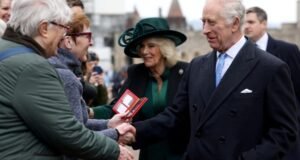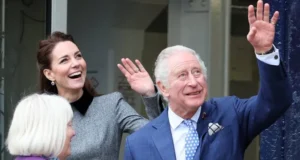UK workers’ pay excluding bonuses rose 2.7 per cent year-on-year in the three months to April, the biggest rise since August 2011, according to official figures released on Wednesday 17 June.
The Office for National Statistics’ latest wages data was an increase from a revised 2.3 per cent figure in the three months to March, indicating a modest – but welcome – rise in living standards for British households.
With inflation hitting minus 0.1 per cent in April, it means that pay rises are worth even more in real terms – around 2.8 per cent for the period – which is the biggest growth since October 2007.
Average weekly pay including bonuses was also up by 2.7 per cent for the three-month period – its strongest surge since February 2009.
Economists taking part in a Reuters poll had forecast total earnings would rise by 2.1 per cent and that earnings excluding bonuses would increase by 2.5 per cent.
Today’s ONS figures also showed that unemployment continued to fall in the three months to April, although it was the smallest decline since February 2013, as the pace continues to slow.
Unemployment fell by 43,000 to 1.81 million, with the jobless rate down to 5.5 per cent, from 5.7 per cent during the period.
The number of people in work rose to 31.05 million, 114,000 more than in the three months to January.
It means the UK’s employment rate now stands at 73.4 per cent, up from 73.3 per cent in the three months to January.
According to the ONS data, 78.3 per cent of men and 68.6 per cent of women aged 16 to 64 were in work.
There were 5.37 million people employed in the public sector for March 2015, down 22,000 from December 2014 and 59,000 compared with a year earlier – the lowest since comparable records began in 1999.
This compares with 25.68 million employed in the private sector for March, 136,000 more than in December and 483,000 ahead of a year earlier.
Employment Minister Priti Patel said: ‘Today’s figures confirm that our long-term economic plan is already starting to deliver a better, more prosperous future for the whole of the country, with wages rising, more people finding jobs and more women in work than ever before.
‘As the Government for working people, we want to go further and create one nation that is based on security and opportunity.
‘We will continue to help businesses create jobs and support those who want to work hard and get on as part of our ambition to achieve full employment.’
Labour welcomed the fall in overall unemployment, but pointed out that the figures showed 740,000 young people were still jobless – though this was slightly down on the previous quarter.
Shadow work and pensions secretary Stephen Timms said: ‘It’s clear the Government needs to do far more to give young people the chance to earn a living.
‘Ministers are failing to ensure young people get the best start in life.’
Analysts broadly welcomed the ONS data, although some sounded a note of caution regarding the unemployment figures.
On currency markets, the pound rose 0.5 per cent to $1.5731, a one-month high versus the dollar, while against the euro, sterling rallied from earlier falls to gain 0.4 per cent at €1.3950 as hopes for a future UK interest rate rise seemed slightly heightened by the labour market data.
 Weekly Bangla Mirror | Bangla Mirror, Bangladeshi news in UK, bangla mirror news
Weekly Bangla Mirror | Bangla Mirror, Bangladeshi news in UK, bangla mirror news







